(My good friend, the amazingly and multi-facetedly impressive Sarah Jebian, recently asked some of her colleagues if they’d be willing to write blog posts that Sarah could share with her voice and acting students in her monthly newsletter. Here’s mine:)
I saw it coming. I knew a solid 8 bars before the high G# that it wasn’t going to come out. We had learned the notes and marked the breaths and identified the vowels and done all of those other Things You’re Supposed to Do Before You Sing a Song. He’d even taken a good, low breath before starting the piece. But as the key changed into the last refrain and the momentum started to build, I saw the self-consciousness chiseling itself into his forehead: was his soft palate high enough? his tongue low enough? his ribcage maintaining noble posture? his base of support sturdy enough?
The irony, of course, is that all of these things are important to consider as you’re building the muscle memory to get your body through the “money note” moment of the song. But focusing on them in that moment is lethal to the art. And telling yourself not to think about them is as effective as telling yourself not to think about pink elephants. So what do you put into your mind when you don’t want to think about how hard it is to be an excellent singer?
Great songs are great songs because they tell great stories. They’re great because they say something to us, or help us to say something we didn’t know how to say ourselves. Because great music has power—because the world is a different place after a great song has been sung well. And that power, I believe, comes from a singer’s immersion in the story—in the world of the song.
I stopped my student during the last phrase before the high G#. “Wait a minute,” I said.
Then I asked him the six questions I ask just about all of my students at some point about every song, every monologue, and every scene:
1. Who are you?
What is your character’s origin story? What archetypes do they echo? What assumptions, values, “baggage” do they carry? What is their super-objective in the play?
2. Whom are you talking to?
What is their power dynamic with your character? What power do they hold over others that you don’t?
3. What do you want from your partner?
There will usually be a text-specific answer and a more essential, archetypical answer. (At the Alsedek Theatre School we call this latter category your “Essential Action,” an idea our founder gleaned from conversations with William H. Macy, Felicity Huffman, and other students of the Atlantic Theatre Company.)
4. How important is your goal?
What are the stakes if you fail? What is the reward if you succeed?
5. What’s in the way?
What (or who) is making it difficult to achieve your goal? What tactics might you employ to overcome those obstacles?
6. How will you know when you’ve succeeded?
What behavior from your scene partner will let you know you’ve accomplished your goal?
We talked through the answers to these questions for several minutes, and as we talked I saw the furrows in his forehead loosen, his shoulders drop, and his breathing slow. The desperate attention to technique relaxed away, and in its place I saw a heartfelt need to tell this character’s story.
“Now,” I said. “Sing.”

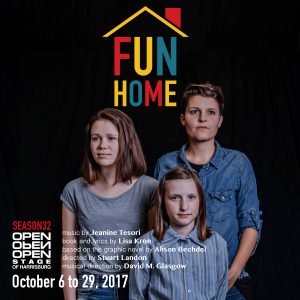 Next month, in case you’ve missed any of my earlier from-the-rooftop announcements, I’ll be playing Bruce Bechdel in Fun Home, the musical based upon Alison Bechdel’s autobiographical “tragicomic.” Bruce was Alison’s father; he was passionate about literature and photography and art and design, and he made sure the home Alison grew up in was pristine and fashionable and full of beauty. He was also gay. And four months after Alison came out to him as lesbian, he killed himself.
Next month, in case you’ve missed any of my earlier from-the-rooftop announcements, I’ll be playing Bruce Bechdel in Fun Home, the musical based upon Alison Bechdel’s autobiographical “tragicomic.” Bruce was Alison’s father; he was passionate about literature and photography and art and design, and he made sure the home Alison grew up in was pristine and fashionable and full of beauty. He was also gay. And four months after Alison came out to him as lesbian, he killed himself.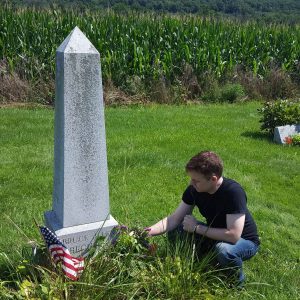 I hope you’ll come see FUN HOME because it is—and I give you my word that this is not an exaggeration—the best-written musical I have ever read. I hope you’ll come see it because the story is funny and poignant and sweet, and the music is fun and glorious and haunting. I hope you’ll come see us because the cast includes some of the most insightful, vulnerable, dedicated actors and singers I’ve ever had the privilege of working with. I hope you’ll come see us because I feel as though playing Bruce at this moment in my life—I’m just 2 years older now than Bruce was when he died—is something that had to happen.
I hope you’ll come see FUN HOME because it is—and I give you my word that this is not an exaggeration—the best-written musical I have ever read. I hope you’ll come see it because the story is funny and poignant and sweet, and the music is fun and glorious and haunting. I hope you’ll come see us because the cast includes some of the most insightful, vulnerable, dedicated actors and singers I’ve ever had the privilege of working with. I hope you’ll come see us because I feel as though playing Bruce at this moment in my life—I’m just 2 years older now than Bruce was when he died—is something that had to happen.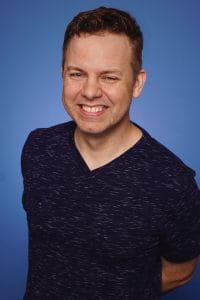
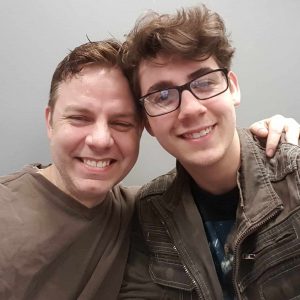
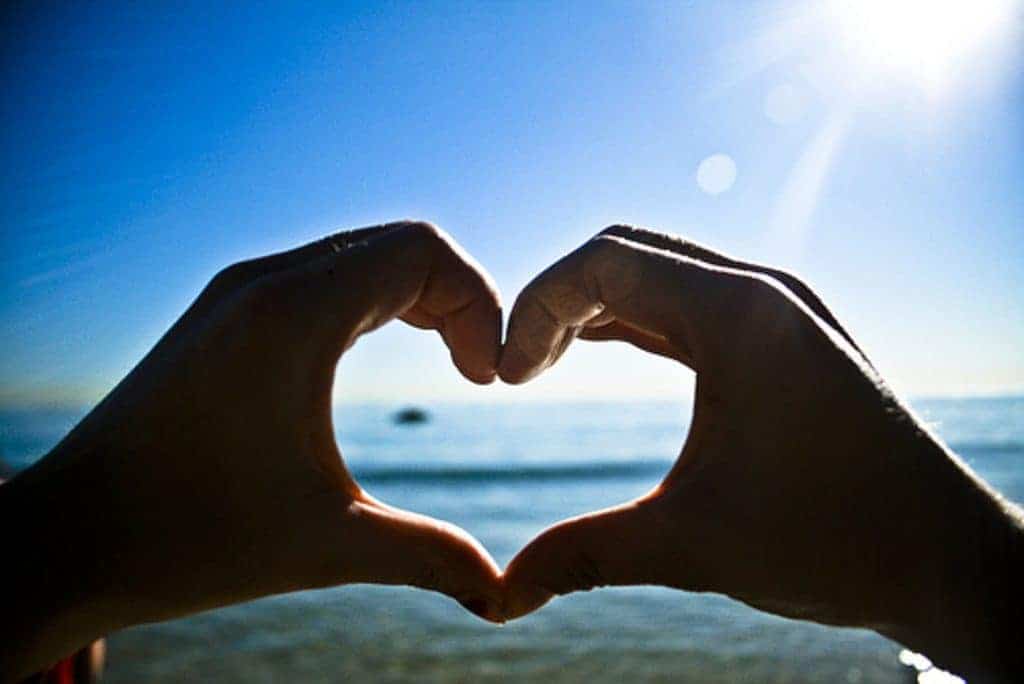 So I will whisper gratitude. To one person at a time, one appreciative moment at a time, I will use thanksgiving to drive out fear. I will do so because it helps me to tear my eyes away from the violently fearful place the world is becoming, and focus on the world I believe is worth saving. I will do it because hearing words of gratitude can make the difference between a sleepless night of self-pity, and a cared-for soul that is ready to speak truth to power.
So I will whisper gratitude. To one person at a time, one appreciative moment at a time, I will use thanksgiving to drive out fear. I will do so because it helps me to tear my eyes away from the violently fearful place the world is becoming, and focus on the world I believe is worth saving. I will do it because hearing words of gratitude can make the difference between a sleepless night of self-pity, and a cared-for soul that is ready to speak truth to power.
Recent comments